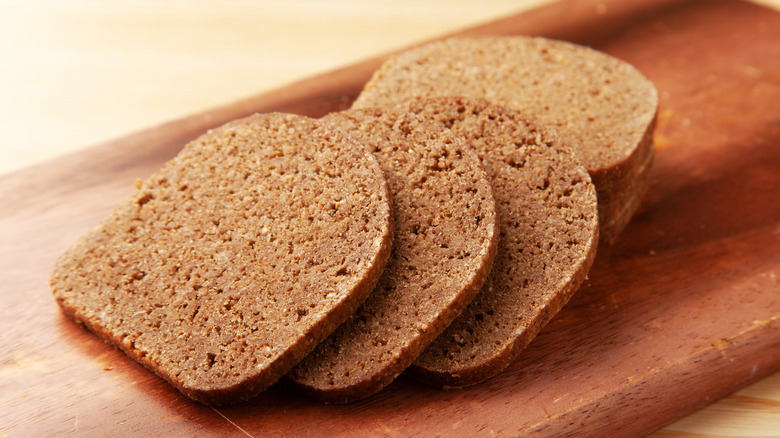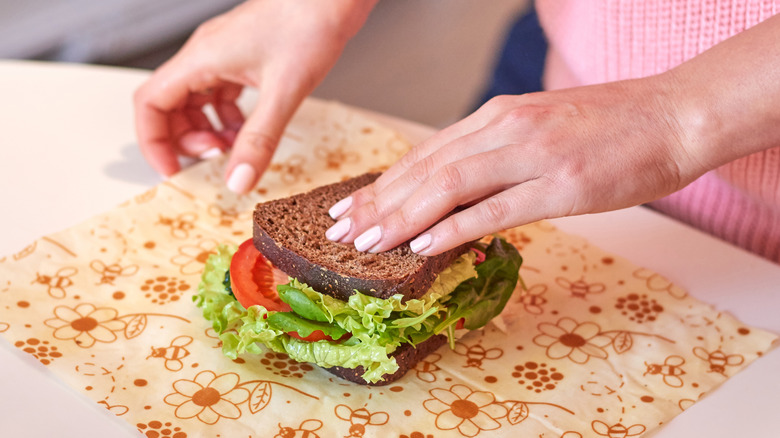Why You Should Start Eating More Rye Bread
If you're a fan of bread, you're in good company. According to the New Hampshire Union Leader, Americans consume roughly 53 pounds of bread per year. That's a whole lot of sandwiches!
If white bread is the main bread you're consuming as your part of the 53-pound national intake, you may want to switch it out every once in a while with a healthier option. Consuming white bread regularly can potentially pack on the pounds and also put you at a higher risk for diabetes and heart disease (via Medical News Today).
One excellent alternative that's worth a try is rye bread. Rye bread is a dense bread that became popular in Northern and Eastern Europe and primarily made its way to the US via the immigrants who came from countries in these regions (via Bakerpedia). There are several varieties of rye, with some of the most common types being light, dark, marbleized, and pumpernickel (via Cook's Illustrated).
According to medical and nutrition experts, eating more rye bread over other kinds of breads could be good for you. "Rye is a great source of vitamins and minerals, including magnesium, potassium and phosphorus, and antioxidants," says Shira Sussi M.S., R.D., CDN, founder of Shira Sussi Nutrition. "To ensure you're getting whole grain rye, look for whole rye or rye berries on the label," she adds (via Well and Good).
Other ways rye bread can benefit your health
Rye bread is also high in fiber, which supports your digestive health by maintaining good bowel movements and protecting against colon cancer. Studies have also shown that eating rye bread is less likely to raise your blood sugar levels when compared to white bread and wheat bread. In addition, research has shown that eating rye bread could be good for your heart by lowering cholesterol levels. (via Healthline).
If rye bread sounds like the bread for you, you should also be aware that is does have a few potential downsides. For one, because it is high in fiber and gluten, consuming rye bread may cause bloating. Also, as it contains gluten, rye bread is not an option for you if you need to be on a gluten-free diet. And the lighter varieties of rye bread contain an anti-nutrient called phytic acid, which could undermine the absorption of certain minerals, but if you are already maintaining a well-balanced diet, this shouldn't be an issue (via EcoWatch).
So the next time you're thinking about enjoying a sandwich, consider swapping out your usual white bread for rye. After a few bites, you may decide it's the greatest thing since sliced bread.


